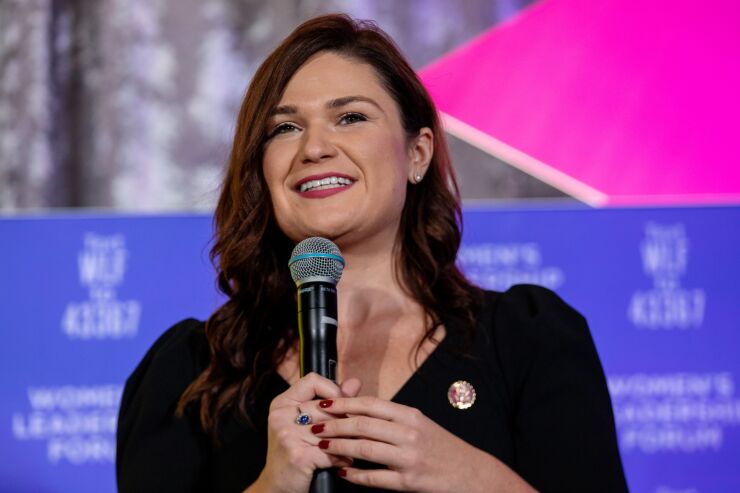The lending limit for tax-exempt private activity bonds issued for first time farmers would be raised to $543,800 from the current ceiling of $450,000 under bipartisan legislation introduced by six House members from farm states.
These so-called aggie bonds are issued in about 16 states with Iowa leading the pack nationally.
Iowa accounted for $16 million of the approximately $36.1 million in aggie bonds issued in 2017, according to a recent survey by the Council of Development Finance Agencies.

Rep. Abby Finkenauer, D-Iowa introduced the bill last week with Rep. Rick Crawford, R-Ark., as her lead Republican cosponsor. The other original cosponsors are Iowa Democratic Reps. Cynthia Axne and David Loebsack along with Republican Reps. Steve Watkins of Kansas and Jeff Fortenberry of Nebraska.
The sponsors are hoping their proposed changes to the aggie bond program will encourage greater use and make it easier for beginning farmers to obtain loans.
“In order to ensure our farming heritage stays alive, we need to encourage our younger generation to carry on the tradition and make sure we’re setting them up for success,” Finkenauer said in a press statement.
“Farmers are already dealing with expensive production costs and low prices, which are being made significantly worse by the ongoing trade war with China, so we need to knock down the barriers where we can,” she said.
Crawford, the bill’s lead Republican sponsor, noted that the average age of an American farmer has edged upward to 57-½.
“Aggie bonds will enable young farmers to access needed financing, giving them a chance to build their own businesses and participate in one of the world’s oldest and most important vocations,” he said. “Agriculture is the backbone of rural America and I will continue working to strengthen this industry and ensure its longevity.”
Their bill, H.R. 5007, is called the Farmers’ Access to Resources and Machinery (FARM) Act.
According to David Ade, a spokesman for Finkenauer, the legislation would make adjustments to ensure that loan limits are annually indexed to inflation and would adjust eligibility requirements to conform with those used by the USDA Farm Service Agency.
Farmers currently cannot qualify for an aggie bond financed loan if they own a substantial amount of land.
The legislation also ensures lending standards are consistent with other loan programs available through FSA.
It also clarifies that new and beginning farmers should own no more than 30% of the average acres owned in the county—not median acres.
Ade said the 2008 Farm Bill raised the maximum aggie bond loan amount and indexed it for future years, but those changes were only applied to loans for land purchases, curbing first-time farmers’ access to an important source of funding.
In previous sessions of Congress dating back more than 10 years ago, Sen. Charles Grassley and Rep. Steve King, both Iowa Republicans, sponsored legislation in their respective chambers to exempt aggie bonds from state volume caps for issuing PABs.
In 2017, Iowa had $1.14 billion in volume cap which came from $313.5 million in new capacity and $824.5 million in unused carryover from 2014 through 2016.
Iowa’s largest category of PAB issuance in 2017 came from $119.4 million in single family mortgage revenue bonds.
Overall, Iowa used $473.8 million in PAB volume cap in 2017 and had $522.5 million in unused volume cap carryforward at the start of 2018.





